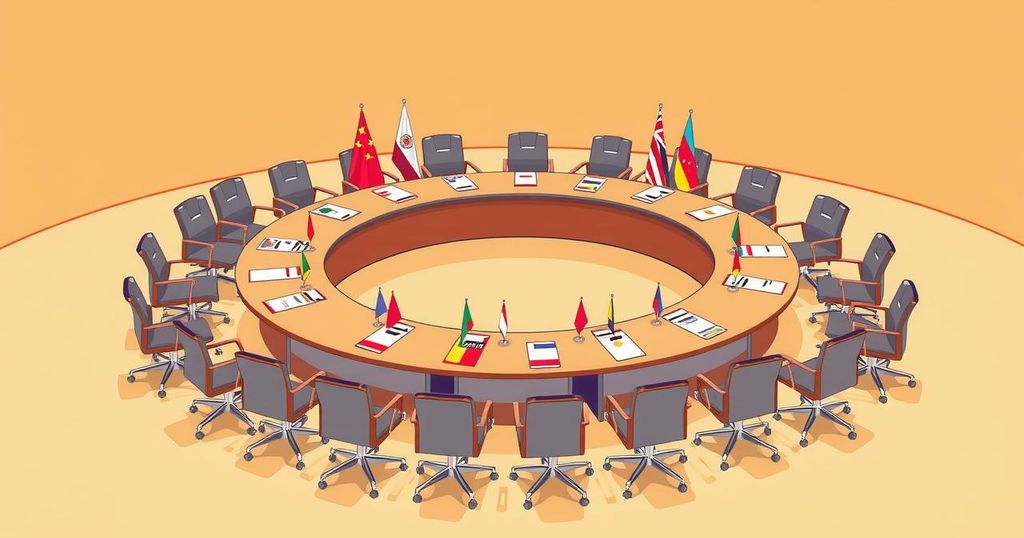Syria Attends Donor Conference for First Time: A Step Towards Recovery
Syria’s interim government will participate in a donor conference for the first time, aiming to secure international support for rebuilding the country after the ousting of President Bashar Assad. Attended by various international representatives, the conference seeks to address Syria’s pressing economic and humanitarian challenges, despite concerns over security and legitimacy of the new leadership. The successful outcome of the conference could significantly impact Syria’s recovery process.
Syria is participating in a donor conference for the first time, marking a significant step for its new leadership following the ousting of President Bashar Assad. The European Union has organized this urgent meeting in Brussels to gather international support aimed at ensuring a peaceful transition. The conference will be attended by various ministers, regional neighbors, and representatives from UN agencies, highlighting the global community’s interest in Syria’s future.
Syria will be represented by Foreign Minister Asaad Hassan al-Shibani at this ninth edition of the conference. The interim government is focused on consolidating control amidst a fragmented territorial landscape and addressing the nation’s urgent economic and infrastructural needs. The rebuilding process, estimated by the United Nations in 2017 to cost at least $250 billion, may require even more resources due to ongoing challenges.
The interim administration is also seeking recognition and legitimacy from the international community, hoping that this engagement will lead to the lifting of existing Western sanctions. However, recent violence, including sectarian attacks following an assault on a Syrian security patrol, raises security concerns amid the ongoing transition. The EU emphasizes the necessity for peace and stability, reiterating its commitment to support Syria’s sovereignty and territorial integrity.
Additionally, Syrian security forces have encountered difficulties in asserting control since the rise of the Islamist group Hayat Tahrir al-Sham. Ahmad al-Sharaa, a former HTS leader, is currently the interim president, and he has enacted a temporary constitution that maintains Islamist rule for five years during a transitional period. While many welcome the end of the Assad regime, skepticism remains among religious and ethnic minorities concerned about the new Islamist leadership.
The humanitarian situation in Syria is dire, with widespread infrastructure destruction and a staggering 80% unemployment rate. Water supplies are often unsafe, and electricity is sporadic, which complicates recovery efforts. As of last year, around seven million internally displaced individuals remain within Syria, while over four million refugees are situated in neighboring countries. Despite these challenges, U.N. humanitarian chief Tom Fletcher noted improved operational conditions for aid organizations compared to the Assad era. The primary goal of the conference is to generate aid pledges, focusing on addressing Syria’s economic and humanitarian needs effectively, provided that calm prevails during the rebuilding process.
The upcoming donor conference represents a pivotal moment for Syria’s interim government, as it seeks to consolidate authority and gain international legitimacy. While the conference aims to address urgent economic and humanitarian needs, ongoing violence and skepticism towards new leadership pose significant challenges. The international community’s response could play a crucial role in shaping Syria’s future and determining the success of reconstruction efforts.
Original Source: apnews.com




Post Comment